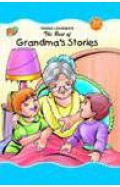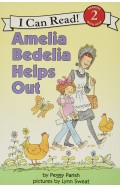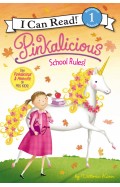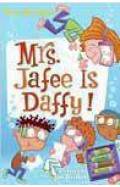Noor Kids Happily Ever Hereafter
By: Amin Aaser
-
Rs 805.50
- Rs 895.00
- 10%
You save Rs 89.50.
Due to constant currency fluctuation, prices are subject to change with or without notice.
Nobody can live forever. Allah (SWT) created us and gives us life, and Allah will decide when to end our lives and take us back to Him (2:156). Naturally, we might fear the time when loved ones will pass away, and we also might worry about when our own time will come. But our faith tells us about death and teaches us what we must do to prepare for the hereafter. In this book, we teach two key lessons.
In the first story, “Life Goes On,” Amira’s parents explain that they can’t and won’t always be with her, but that Allah (SWT) always is and will always continue to take care of her. Not only that, a person’s life doesn’t stop with death; rather, it is a transition from one world to another. Therefore, while it’s expected to miss the one who passed away, we should take solace in the fact that, “The hereafter is better and more lasting” (87:17).
The second story is about preparing ourselves for the hereafter. Our belief in Qiyamah, the Day of Judgement, fundamentally changes how we live our lives. We didn’t come into this world simply to go to school, get a job, have a family, and then die. Allah (SWT) tells us that He created death and life as a test to see who is the best in deeds (67:2). We must try to perform the best of deeds such that we become good human beings in the eyes of God, before our time on earth is up. Good deeds are like bricks, which we can use to build our house in paradise, our ultimate destination, insha’Allah. The second story, “A Home in the Hereafter,” conveys this lesson through Haroon Uncle’s example, as he role models what it means to live a life for the next.
Nobody can live forever. Allah (SWT) created us and gives us life, and Allah will decide when to end our lives and take us back to Him (2:156). Naturally, we might fear the time when loved ones will pass away, and we also might worry about when our own time will come. But our faith tells us about death and teaches us what we must do to prepare for the hereafter. In this book, we teach two key lessons.
In the first story, “Life Goes On,” Amira’s parents explain that they can’t and won’t always be with her, but that Allah (SWT) always is and will always continue to take care of her. Not only that, a person’s life doesn’t stop with death; rather, it is a transition from one world to another. Therefore, while it’s expected to miss the one who passed away, we should take solace in the fact that, “The hereafter is better and more lasting” (87:17).
The second story is about preparing ourselves for the hereafter. Our belief in Qiyamah, the Day of Judgement, fundamentally changes how we live our lives. We didn’t come into this world simply to go to school, get a job, have a family, and then die. Allah (SWT) tells us that He created death and life as a test to see who is the best in deeds (67:2). We must try to perform the best of deeds such that we become good human beings in the eyes of God, before our time on earth is up. Good deeds are like bricks, which we can use to build our house in paradise, our ultimate destination, insha’Allah. The second story, “A Home in the Hereafter,” conveys this lesson through Haroon Uncle’s example, as he role models what it means to live a life for the next.
Noor Kids Giving Thanks (Noor Kids; A Light for Little Muslims)
By: Amin Aaser
Rs 805.50 Rs 895.00 Ex Tax :Rs 805.50
Zubin Mehta: A Musical Journey (An Authorized Biography)
By: VOID - Bakhtiar K. Dadabhoy
Rs 630.00 Rs 1,050.00 Ex Tax :Rs 630.00
Noor Kids Giving Thanks (Noor Kids; A Light for Little Muslims)
By: Amin Aaser
Rs 805.50 Rs 895.00 Ex Tax :Rs 805.50
Young Learners The Best of Grandmas Stories -
By: Rungeen Singh
Rs 135.00 Rs 150.00 Ex Tax :Rs 135.00
Story Reader 2.0 with Dora the Explorer Storybook
By: Publications International
Rs 2,925.00 Rs 3,250.00 Ex Tax :Rs 2,925.00
Noor Kids Giving Thanks (Noor Kids; A Light for Little Muslims)
By: Amin Aaser
Rs 805.50 Rs 895.00 Ex Tax :Rs 805.50
No recently viewed books available at the moment.
Zubin Mehta: A Musical Journey (An Authorized Biography)
By: VOID - Bakhtiar K. Dadabhoy
Rs 630.00 Rs 1,050.00 Ex Tax :Rs 630.00
Noor Kids Giving Thanks (Noor Kids; A Light for Little Muslims)
By: Amin Aaser
Rs 805.50 Rs 895.00 Ex Tax :Rs 805.50
Noor Kids Giving Thanks (Noor Kids; A Light for Little Muslims)
By: Amin Aaser
Rs 805.50 Rs 895.00 Ex Tax :Rs 805.50













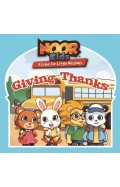





-120x187.png?q6)


-120x187.jpg?q6)





